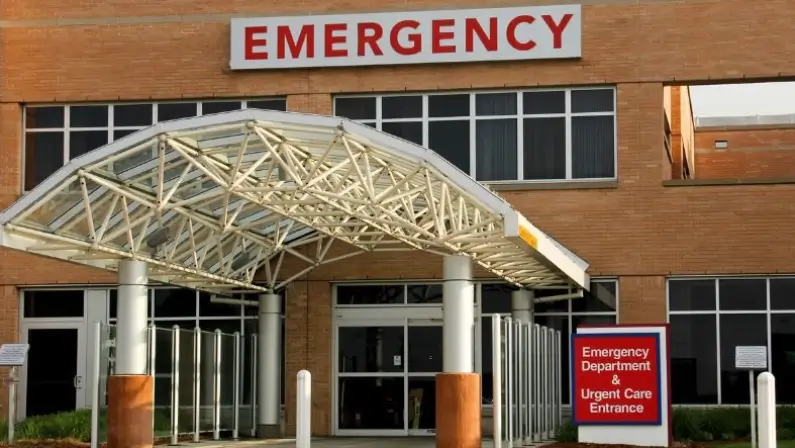When you’re dealing with a health issue, it can be confusing to decide whether to go to an emergency room (ER) or an urgent care center. Think of it like this: imagine you hurt your arm. If it’s just a minor injury like a small cut, an urgent care center is like the right place to fix it up quickly. But if your arm is really badly hurt, like it’s broken and bent in a strange way, that’s when you should head to the emergency room. Both the ER and urgent care are important, but knowing when to pick each one can really help you get the best and fastest care.
In this article, we’ll break down the key differences between emergency rooms (ERs) and urgent care centers, helping you understand which one is the right choice depending on your situation.
Importance of Knowing When to Choose ER vs. Urgent Care
When it comes to seeking medical care, knowing the appropriate facility to visit can help streamline the treatment process. Urgent care centers and emergency rooms serve distinct purposes, and having a clear understanding of their roles can ensure that you receive the right level of care at the right time.
Understanding Emergency Rooms
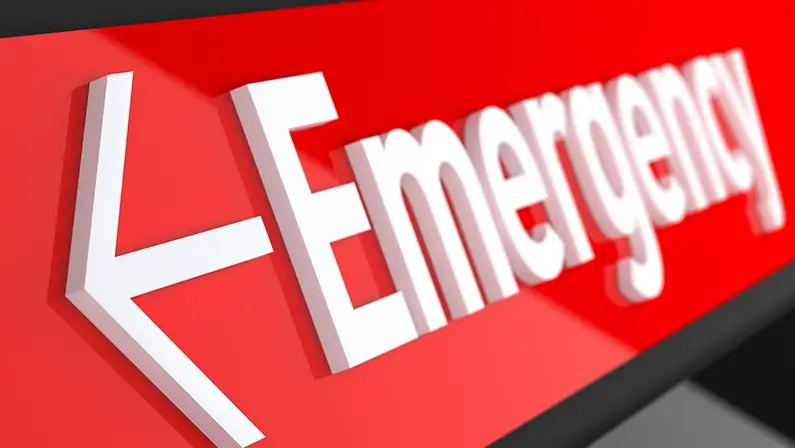
Emergency rooms are designed to handle critical and life-threatening situations that require immediate attention. They are equipped to manage a wide range of medical emergencies, from severe injuries to acute illnesses demanding urgent medical intervention.
Definition and Purpose of Emergency Rooms
Emergency rooms are specialized medical facilities equipped to address critical and life-threatening conditions, 24/7. Their primary purpose is to provide immediate care and stabilization for patients facing severe medical issues.
Types of Medical Conditions Treated in ERs:
Emergency rooms (ERs) promptly treat a variety of medical conditions to prevent them from getting worse. These conditions include:
1. Life-Threatening Emergencies
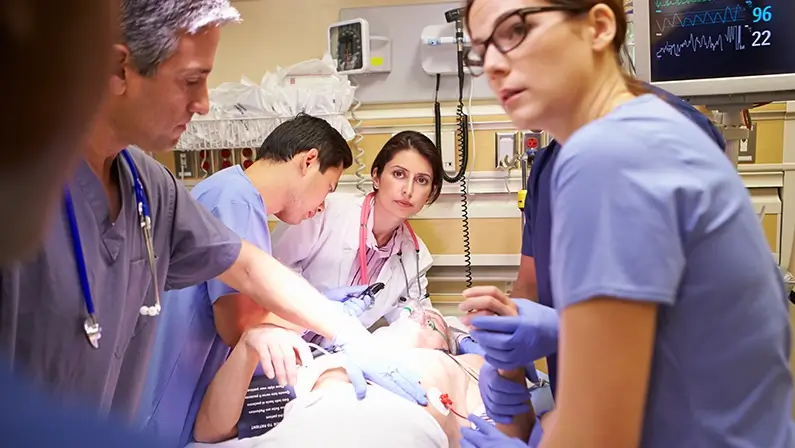
Emergency rooms excel in managing critical situations that could swiftly evolve into life-threatening crises without prompt intervention. Conditions such as heart attacks, strokes, and severe allergic reactions fall into this category, necessitating rapid and skilled medical attention to prevent further deterioration and ensure the best possible outcomes for patients.
2. Severe Injuries
Emergency rooms are also recommended for individuals who have sustained traumatic injuries, ranging from major fractures to deep wounds. The expertise of the ER staff allows them to administer immediate and precise care, which is often crucial in preventing further damage, minimizing pain, and promoting effective recovery strategies.
3.Acute Illnesses Requiring Immediate Attention
Sometimes, acute illnesses can escalate rapidly, catching patients and their caregivers off guard. In these scenarios, emergency rooms step in to provide the necessary medical evaluation, diagnostic tools, and therapeutic interventions. The ability to respond swiftly to evolving symptoms is essential in managing these cases and potentially averting complications.
24/7 Availability and Comprehensive Medical Services
Emergency rooms operate round the clock, ensuring immediate medical care for critical situations. They offer a wide range of medical services, including advanced imaging and surgery, making them essential for urgent and severe cases.
The constant availability of ERs means that you can get the medical attention you need at any time, day or night. This is crucial for situations that require immediate care, like heart attacks or accidents.
ERs also provide more than just quick attention – they have advanced tools like MRI, CT scans, and X-rays to diagnose medical issues accurately and swiftly. If surgery is necessary, ERs are equipped with operating rooms and skilled surgical teams to perform procedures when necessary.
Exploring Urgent Care Centers
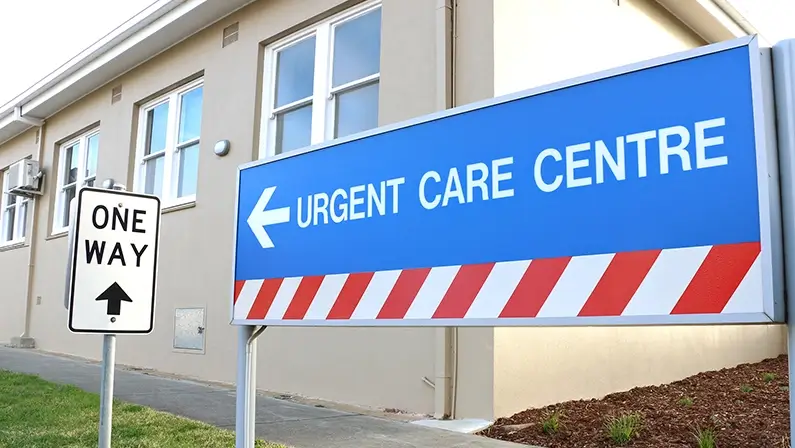
Urgent care centers, on the other hand, cater to non-life-threatening medical concerns, providing an alternative to the ER for minor injuries and illnesses that require prompt attention.
Definition and Purpose of Urgent Care Centers
Urgent care centers offer medical care for non-life-threatening issues that require timely treatment. They fill the gap between primary care physicians and emergency rooms, providing convenience and flexibility.
Types of Medical Conditions Treated in Urgent Care Centers
Urgent care centers promptly address a variety of medical conditions to prevent their escalation. These conditions include:
1. Non-Life-Threatening Injuries and Illnesses
Urgent care centers are designed to efficiently manage minor injuries and illnesses that don’t pose an immediate threat to life. Whether it’s a small fracture, a cut requiring stitches, or common issues like ear infections, these centers are equipped to offer timely and appropriate treatment. By addressing these non-emergent cases, urgent care centers alleviate the strain on emergency rooms, allowing them to focus on more critical cases.
2. Minor Fractures and Sprains
Suspecting a minor fracture or experiencing a sprain can be uncomfortable, but urgent care centers provide a convenient solution. With the availability of X-ray facilities and skilled medical professionals, these centers can accurately diagnose and initiate treatment for these types of injuries, ensuring proper healing and minimizing any potential complications.
3. Fevers, Colds, and Flu-Like Symptoms
Common illnesses like fevers, colds, and flu-like symptoms can disrupt daily life. Urgent care centers offer relief by providing appropriate care for these ailments. Whether it’s managing fever, soothing a sore throat, or alleviating congestion, the medical staff at these centers aim to provide comfort and effective symptom relief.
Extended Hours and Convenient Access
Urgent care centers often have extended hours, including evenings and weekends, making them accessible when primary care offices might be closed.
Benefits of Choosing Urgent Care
When it comes to seeking medical attention, urgent care centers offer a range of benefits that can significantly enhance your healthcare experience.
Shorter Wait Times
Urgent care centers are designed to minimize waiting times, providing swift access to medical care. Unlike emergency rooms, where critical cases are a priority, urgent care centers focus on efficiently addressing non-critical issues. This means you can receive the attention you need promptly, allowing you to get back to your daily activities sooner.
Lower Costs Compared to ER Visits
Opting for urgent care can also translate into considerable cost savings. Emergency room visits often come with higher medical bills due to the specialized nature of care provided. Urgent care centers, on the other hand, offer a more affordable alternative for addressing minor medical concerns without compromising on quality.
Focus on Non-Critical Cases
Urgent care centers are equipped to handle non-critical cases, allowing emergency rooms to focus on critical and life-threatening situations. This collaborative approach ensures that everyone receives appropriate care based on the urgency and severity of their condition.
Differentiating Factors: When to Choose ER or Urgent Care
Understanding the specific scenarios that warrant a visit to either an ER or an urgent care center is crucial for receiving appropriate and timely care.
Life-Threatening Situations Requiring ER Attention
When facing major emergencies or life-threatening situations that require immediate medical attention, turning to the ER can make all the difference. Here are some life-threatening scenarios that necessitate prompt ER intervention:
1. Heart Attack or Stroke Symptoms
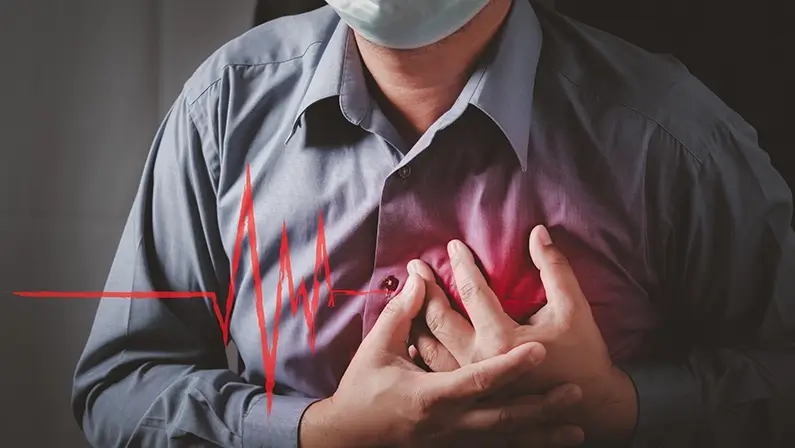
Symptoms such as sudden, intense chest pain, numbness or weakness on one side of the body, slurred speech, and confusion are indicative of a heart attack or stroke. In these cases, every moment counts. Seeking ER care swiftly can potentially save a life and minimize the damage caused by these critical events.
2. Severe Bleeding or Trauma
Profuse bleeding or traumatic injuries that involve deep cuts, fractures with displacement, or head injuries demand the specialized care available in an ER setting. Quick and effective treatment is vital in controlling bleeding, preventing further harm, and ensuring the best possible outcome for the injured person.
3. Difficulty Breathing
Any difficulty in breathing, especially when accompanied by chest pain, bluish skin, or extreme distress, is a clear sign of a serious medical issue that requires immediate attention. ERs are equipped to rapidly assess and address breathing problems, providing life-saving interventions when necessary.
Non-Life-Threatening Scenarios Suitable for Urgent Care
Urgent care centers offer a practical solution for a range of non-life-threatening scenarios that require timely attention. Here are some examples of non-life-threatening situations that are suitable for urgent care:
1. Minor Cuts Requiring Stitches
For minor lacerations that need proper closure, urgent care centers are well-equipped to provide stitching. From small accidents in the kitchen to minor cuts incurred during outdoor activities, urgent care can efficiently clean, assess, and stitch up wounds to promote proper healing and minimize the risk of infection.
2. Mild to Moderate Allergic Reactions
Allergic reactions that fall short of being severe but still require medical attention can be managed effectively at urgent care centers. Instances like rashes, mild swelling, or itching due to allergies can be evaluated and treated to provide relief and prevent escalation.
3. Common Illnesses and Infections

Urgent care centers are equipped to handle common illnesses such as colds, flu, and ear infections. They can offer appropriate treatment and advice to help manage symptoms and facilitate recovery.
Choosing Wisely: Navigating Emergency Rooms and Urgent Care Centers
When you’re in a situation where you need immediate medical attention, the decision between emergency rooms and urgent care centers depends on the specific medical situation at hand.
Understanding the unique services, advantages, and appropriate scenarios for each facility empowers individuals to make well-informed and timely healthcare choices.
Remember, if you’re ever unsure about the severity of your condition, don’t hesitate to seek professional medical evaluation. Prioritizing your health and well-being is paramount, and having trusted facilities like Aether Health – Kingwood ER in your vicinity can provide you with the peace of mind that skilled help is close at hand when you need it.

